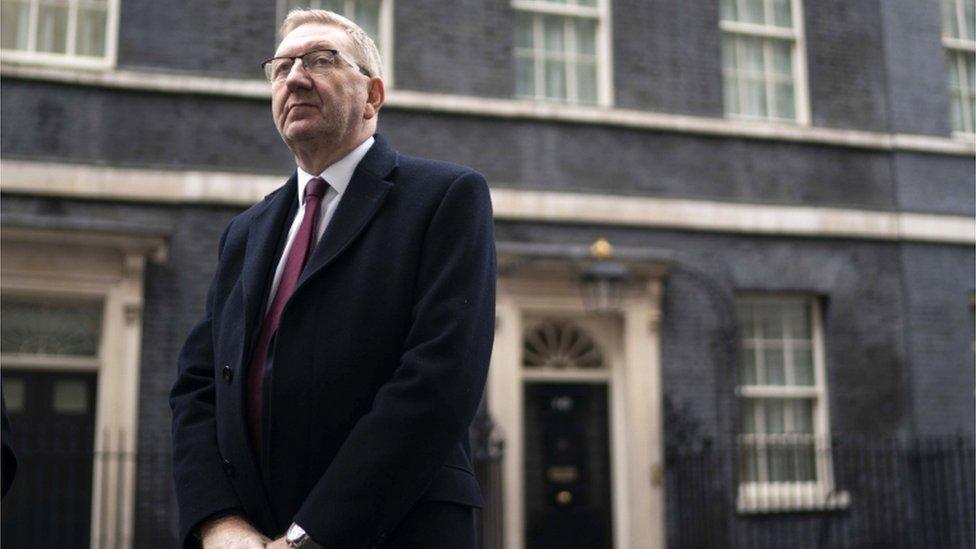Brexit vote: Is cash for constituencies wrong?
- Published
John Mann: This is not transactional politics
A couple of weeks ago, a Labour MP confessed quietly that they would vote for Theresa May's Brexit deal in the end.
But they wanted something to show for it, suggesting, half-teasingly, that they wanted the PFI debt of their local hospital paid off.
That MP was frustrated that the government had taken so long, as they saw it, to try to reach out to get them on board.
But they predicted that we would soon see what they described as "transactional politics", in a way that we haven't seen before in this country.
With Number 10 in a frantic hunt for support, maybe that time has arrived.
I'm not so sure how new this really is, but it's playing out in public.
Another MP, now a minister, described once how - when they were an aide to a very senior member of a former government - it had been their job to come up with projects that would cost just under £1m for MPs whose support might be required in sticky political moments.
They were duly located and kept in a file on a shelf in the office, for just the right moment.
Whether a new bypass, a station upgrade, or some other local bauble, it's naïve to imagine that promises of financial help for local projects never play a role in individual politicians' decisions.
And sometimes it happens in a big way - after all, this government brokered a deal to stay in power with the DUP with a very public promise of £1bn to be spent in Northern Ireland.
But right now, the government's need for votes is more urgent than it's ever been. And there are at least 20 Labour MPs who are, theoretically, interested in being persuaded.
Judgement on whether that is right or not is, inevitably, in the eye of the beholder.
You might find it deeply unsavoury that some Labour MPs appear to have a price.
Or, you might think it's perfectly right for MPs to be using this opportunity to push for as much financial help and support for their towns as they can get.
You can listen to John Mann, one of those taking part in the negotiations with Number 10, explain their viewpoint here.
After many, many years of spending cuts, you might not blame them for pushing for a fund, potentially of many billions, to be put together and spent in parts of the country that have often been left out.
And if it helps the government get a tweaked Brexit deal through the Commons, well - so be it.

Unite boss Len McCluskey has also met the prime minister
For union leaders who are now engaging with Number 10 over workers' rights and environmental protections, there is an opportunity too.
And just as there are vocal supporters of another referendum in the Labour Party, there are dozens and dozens of MPs who want it over with, and want to avoid there being no deal at all.
Number 10 would deny that there is anything grubby about all of this.
They are serious about trying to show that they are listening to what their normal rivals are asking for.
Promises like the extension of rights for new parents at work that was made last week demonstrates this is more than just a talking exercise.
What we can't yet know though, is how significant this kind of collective bargaining might prove (remember lots of Labour MPs are former union officials too).
And those opposition MPs who take part publicly in these kinds of deals can also expect a fair amount of criticism, perhaps very bitter, from Labour Party members and, maybe, some of their colleagues too.
But there aren't many hard and fast rules in politics.
And it's not impossible to see how, after many more twists and turns, these conversations might turn into promises that might make all the difference.
As ever, in this long and twisty journey, never assume what might happen, really will.
